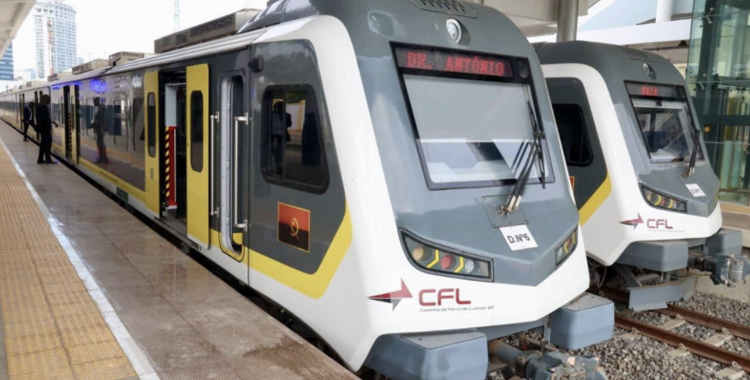The express train, which has only been running since Thursday and is intended to serve the new AIAAN, left this Sunday punctually at 4am from Bungo station, in Luanda, with a single passenger for Luanda, José Marques, who continued accompanied by teams reporters, Luanda Railway employees, police officers and airport workers.
The Chinese railcar, known as DMU (Diesel Multiple Unit), still smelling new, continued slowly, into the dark night and took an hour and 15 minutes to reach its final destination, 44 kilometers later.
For José Marques, who confesses that he was missing the train because he had let himself sleep when the alarm clock rang at 3am, this was the best solution he found in terms of public transport in terms of cost.
"I researched and the prices they were giving me were quite high (for personalized taxis), the cheapest was 15,000 kwanzas and I saw that I could spend less coming by train", he explained to Lusa.
He looked for information on social media, bought the ticket the day before (priced at 5000 kwanzas) and found that the train "works well", although there are some issues with the service at the ticket offices, where he was unable to pay by card.
"It's an appeal that I leave, you have to have a TPA (payment terminal), it was an exercise having to go at that time to withdraw money to pay for a ticket. It's not justified, especially now that there will be a lot of passengers going to Cabinda", commented.
It also recommends the creation of an application that facilitates passenger mobility, combining the different modes of transport and timetables available, bearing in mind that information is not easily accessible, and a telephone number to answer passengers' questions.
"The information available must be greater, why not have an application, a number where you can call and get updated information?", he asked, highlighting that the airport will manage greater traffic and should think about modernizing services for passengers.
José Marques praised the beginning of connections to Cabinda from the new AIAAN, which "go down in history" as it is the first province to receive passenger flights, but at the same time it is "a stress".
"We, the passengers of Cabinda, are going to serve as a test of how the airport works. It's a whole new dynamic for the lives of passengers in Cabinda", he stated, noting that this destination receives a significant flow of passengers who have to adapt to the new circumstances.
"It's a lot of stress, especially for those who have less information about how to access the airport," said José Marques.
"I believe that's why (the train) isn't full", he argued, appearing surprised by the absence of travelers, "especially because the conditions are great".
At the only intermediate stop, Viana, three young employees from the TAAG lounge's food service area are also making their debut in this new mode of transport to get to work.
"It's the first time I've taken this train, it's the first time it's taken us to the airport," said Sérgio Miguel, adding that, so far, he has mainly used company transport.
But, in the absence of this, I would have to take several taxis (passenger collectives): "it was super difficult and with the train it is more flexible, calmer, more comfortable and safer also due to the time we had to leave home" for the new airport.
Workers can have access to discounted monthly passes, he said, highlighting that this is "a new experience, a good one to have", thanking him for the opportunity.
A train driver for 13 years, Cláudio Bastos does not hide his pride in participating in this "new goal" that adds to the experience achieved on other types of trains, but the interview has to be interrupted.
It is necessary to leave and under Cláudio's safe command, the DMU blows the whistle and continues its journey.
At 5:15 am, the train approaches the empty platform, which contrasts with the confusion of hurried passengers characteristic of busier airports.
Here, the day is breaking, and only the buzzing of crickets interrupts the silence of the deserted station that began to receive the first passengers on Sunday.







